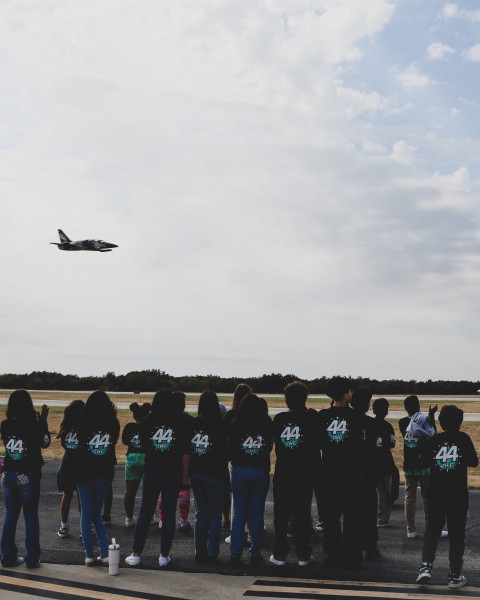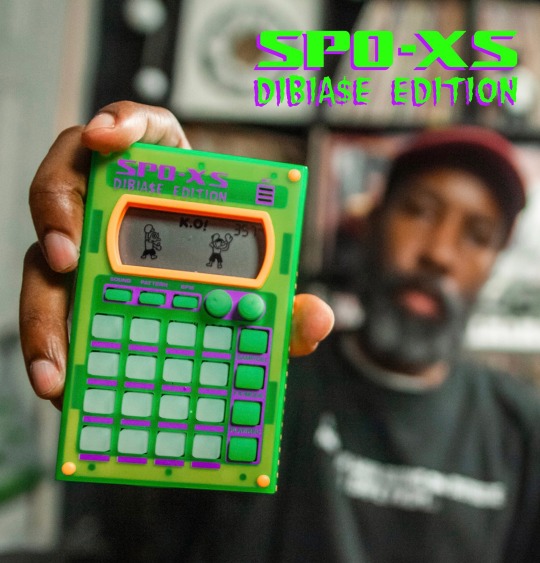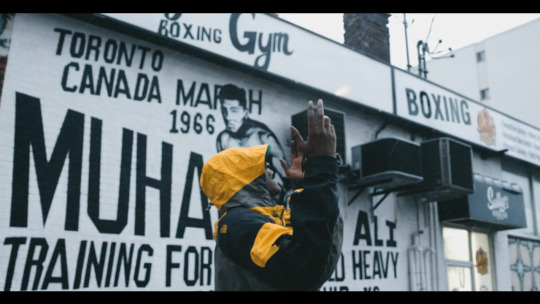#dibia
Explore tagged Tumblr posts
Text

Happy SP404 Day
#Sp 404#sp404#sp404sx#sp404mkii#sp404mk2#Sp404a#Lofi#Beats#Charles munka#Los Angeles#Art#Print#Ras G#Doom#Dibiase#dibia$e#Flying lotus#hudson mohawke#Hudmo#James brown#Dilla#Jay Dee#Rza#the gaslamp killer#Ohhhh rassss#Afrikan space program
21 notes
·
View notes
Text
Raz Fresco & DiBiase - NO MANS LAND
6 notes
·
View notes
Link
2 notes
·
View notes
Text
#dutchmassive#dutchyyy#elaquent#dibia$e#edac#rnd1#thxkyu#freestyle#dailyrambles#tascam#underground hip hop#lofi hip hop#Bandcamp
0 notes
Text










From the Racetrack To Space: IWC Schaffhausen and the Polaris Program Give Lewis Hamilton Astronaut Flight Training
Schaffhausen/Qatar, 26th November 2024: In a compelling new short movie produced by IWC Schaffhausen, Mercedes-AMG Petronas Formula One Team driver Lewis Hamilton embarks on a flight training for astronauts. The same training was used to prepare the crews of the Inspiration 4 and Polaris Dawn commercial human spaceflight missions. During the training day, the seven-time Formula 1 world champion and IWC brand ambassador was accompanied by students from Dibia DREAM, a non-profit organisation fostering STEM education. Their presence is also a reminder of Lewis Hamilton's own incredible career journey spanning more than three decades and sends an inspiring message: you can be anything you want in life – a pilot on the racetrack, in the air or even in space.
One of the most successful racing drivers of all time, Lewis Hamilton is a multifaceted personality whose interests and ambitions extend far beyond his sport. The seven-time Formula 1 world champion is deeply fascinated by space and human space exploration. He has visited renowned space training facilities and repeatedly expressed his desire to take part in a space mission in the future if it serves a purpose and contributes to the betterment of all humanity. IWC Schaffhausen now teamed up with the Polaris Program and its Philanthropy Director and instructor pilot, John "Slick" Baum, to offer Lewis Hamilton an opportunity to experience the flight training that is part of the organization's programme of preparing astronauts for space. The Polaris Program, which is supported by IWC, recently completed the first of three human spaceflight missions. During their five days in orbit, the Polaris Dawn crew wrote history by successfully performing the first commercial spacewalk.
FLIGHT TRAINING IS ESSENTIAL FOR ASTRONAUTS
Fighter jet training has been at the heart of human spaceflight since the beginning. All early astronauts were fighter jet pilots, and experience in piloting a jet was an essential requirement for going to space. Flight training was also a key pillar in the preparation of the Inspiration 4 and Polaris Dawn crews for their missions. While the g-loads experienced in a jet or a rocket cannot be directly compared, as they affect the body in different ways, jet training still offers compelling benefits for astronauts. Most importantly, it allows the crew members to familiarise themselves with operating in a high-risk and high-consequence environment, similar to what they would experience during launch. While they are pressed down into their seats by several times their own body weight, they have to communicate with each other, go through extensive technical checklists, and monitor critical flight parameters – all while being mentally aware of their surroundings and prepared to act in case something unexpected should happen.
A COMPLETE SEQUENCE OF TRAINING MANOEUVRES
Lewis Hamilton's space training kicked off with an extensive briefing and inspection of the L-39 Albatros jet. John "Slick" Baum gave Hamilton a detailed overview of the manoeuvres they would fly and how they simulate different situations an astronaut experiences during a spaceflight. During their subsequent discovery flight lasting almost one hour, Hamilton and his instructor performed a series of manoeuvres. They practiced accelerations and decelerations to experience lateral g-forces, simulating the ascent of a rocket. They also practiced higher g-loads by banking or pitching the aircraft hard. A highlight was flying a parabola figure for a zero-g demonstration, during which Hamilton briefly experienced the feeling of weightlessness. A racing glove, which eventually began to float freely in the cockpit, was used as a zero-g indicator. In flight, the F1 pilot pulled a maximum of 7.5 g, which is more than astronauts typically experience on ascent. Hamilton wore a dedicated race suit featuring a "space mission" patch with his car number 44. He will wear the same suit during this weekend's race at the Lusail International Circuit in Qatar.
DIBIA DREAM STUDENTS SEND A POWERFUL MESSAGE
The training was also attended by a group of students from Dibia DREAM. This nonprofit organisation sparks social change through STEM education and recreational activities for underserved youth and has impacted the lives of 40,000 students across 32 states and twelve countries. The students spent the entire day engaging in a variety of activities related to space exploration. They also got a chance to meet with Hamilton and ask him questions prior to take-off. Their presence served as a powerful reminder of Hamilton's incredible journey, from his humble beginnings in karting at the age of eight to becoming one of the most acclaimed drivers in the history of motorsport. As the students cheered alongside the runway, they sent an uplifting message to youths around the world: you can be anything you want in life – whether it is a racing driver, a pilot, or even an astronaut.
#lewis hamilton#f1#formula 1#fic ref#fic ref 2024#not a race#2024 not a race#between las vegas and qatar#(note to self: no idea when actually shot)
88 notes
·
View notes
Text
INCORPORATING IGBO CULTURE INTO MY NOVEL
Bringing Authenticity to My Story Through Language, Traditions, and Daily Life
As I continue researching and expanding my knowledge on this topic, I’ve realized that incorporating culture into a story isn’t just about adding traditions—it’s about immersing readers in a living, breathing world. Whether you’re writing a novel, a graphic novel, or any other form of storytelling, cultural elements can add depth and authenticity.
Modes of Communication and Transportation
The primary mode of transportation in traditional Igbo society was walking, while communication relied heavily on word of mouth. In my video, I gave an example from my story where an individual is tasked with spreading announcements within the community.
You might wonder if horses or donkeys were used, but in reality, they weren’t common in Igbo land. Even today, horses are a rare sight in Eastern Nigeria. Instead, the animals most commonly seen are goats, cattle, and poultry.
Traditional Housing and Cutlery
Traditional Igbo houses were built using mud, with bamboo structures as support. However, market spaces and shops were less developed, often featuring bamboo frames and mats used to divide sections.
Another key cultural element I incorporated into my novel is Nsibidi symbols. These symbols were historically used in communication and could often be found on walls, gates, or even attire like the Ukara cloth.
When it comes to traditional Igbo cooking, firewood was the main fuel source, and clay pots were used for cooking, storing food, and fetching water.
Calabash vs. Clay Bowls
At first, I found it difficult to differentiate between calabashes and clay bowls. Here’s a simple breakdown:
Clay bowls: Used for cooking, storing food, and ritual practices.
Calabashes: Made from dried gourds, used as dishes, bottles, cups, and cooking spoons—but not for direct cooking over fire.
Using Igbo Language in My Novel
One of my favorite aspects of world-building has been incorporating Igbo language into my story. Here are some of the names and words I’ve included:
Character Names:
Ijeoma Maduka – The main character
Obinna Chetachukwu
Amobi Nwakaego
Nduka Jidenna
Dike Azubuike
Deberechi Obiora
Igbo Words & Their Meanings:
Anwụansi ojii – Black magic
Eze Ọjọọ – Dark Lord
Ebe izu ike – Resting place / grave
Nkwu elu – Palm wine
Enyi m – My friend
Ike mana – Strength
Dibia – Physician / doctor
I have also divided the use of Igbo language in my novel:
The gods, goddesses, and priests/priestesses speak Igbo fluently.
Common people speak it incompletely but use key phrases for rituals, greetings, and traditional contexts.
This distinction adds a mystical quality to the language and makes it feel like a sacred part of the culture.
What’s Next?
In my next video, I’ll discuss more aspects of traditional Igbo life, including food, daily rituals, and beliefs.
Have you ever incorporated elements of your culture into a story? I’d love to hear about it in the comments!
#writing#story writing#writers and poets#writerscommunity#writing community#fiction writing#nigerian#writer#african writers#writers#igbo culture#igbo#igbo storytelling#black female writers#female writers#black women#writing stuff#written#writers on tumblr#writeblr#writterscommunity#writting#writters on tumblr#new writter#new writers on tumblr#digital artist#artists on tumblr#graphic novel#story telling#story structure
28 notes
·
View notes
Text

V-Day 2025 - Garm, Dibia and Kumba.
10 notes
·
View notes
Text


Societies without the state
Administrative polities
The third type of stateless society in Evans-Pritchard and Fortes' classification is one in which an administrative apparatus constitutes the political framework. I believe that closer examination of examples of this type will show that many, if not most, exhibit certain rudimentary governmental and state qualities. Consider the Ibo{5}, the second largest ethnic community in southern Nigeria. They presently number some seven million and have traditionally been town dwellers, and marketing and trading are major activities of these people noted for their aggressive business-like activities and their individualism. Throughout Iboland there are at least two different kinds of polity. Thus, some Ibo towns have 'kings' and a governmental structure which is intrusive and not typically Ibo. Over most of Iboland the traditional highly decentralised and acephalous political system has prevailed.
Much of the Ibo social life is dependent upon participation within a patrilineage structure, the fundamental unit of which is the compound under the supervision of its senior male. Related and neighbouring lineage segments and compounds comprise a village which is ordinarily the maximal unit of social integration and control. Within the village complaints and legal proceedings are undertaken by compound heads or by groups of mediating third parties each of whom may be called upon to settle a dispute. But such mediators have no power to impose their decisions. Thus, if one is not satisfied by this procedure he appeals to other institutions. The elders within each village who form a specific age grade, comprise a deliberative, legislative, judicial, and executive body to whom an injured party may appeal. The elders do not act unless they are called upon to do so. They function as a court, deciding guilt or innocence and assessing fines and punishments. Punishments are meted out by the young members of the age grade association. That is, the Ibo age grades with responsibilities associated with each grade. The members of the younger grades are, among other things, responsible for bringing witnesses and culprits to the village courts and for executing punishments decided by the court. One found guilty of stealing, for example, may be tied up for days on end without food, or if he is caught red-handed, he is carried around the village along with what he has stolen and those on the street curse him, spit on him and ridicule him. There is no power of capital punishment, but a murderer is expected to hang himself if caught.
Aside from this governmental technique, Ibo society has other methods for imposing sanctions. There are associations of titled men which exert considerable influence. Such organisations offer various titles which a man may purchase and so acquire prestige. Religious sanctions are imposed by dibia associations which are for religious specialists. There are associations for herbalists, for diviners or medicine men; each requires a considerable initiation fee and leads to a member's ordination as a priest within the association. Most important among such individuals are the oracles through whom the gods speak, making predictions, answering questions and, thus, operating as a major force directing people's behaviour.
Ibo society, to use Bohannan's term, has a multicentric power system (Bohannan, page 301 ff). Clearly it has a government, but this government is minimal and is sovereign only over a small population. In addition, there are several distinct loci of power. While in the usual state a monopoly on the use of violence to impose rules derives from a single source, among Ibo there are several legitimate centres of power so that nobody can claim such a monopoly. Ibo are best seen as having a marginal or rudimentary form of government and one may wonder to what extent this may also be true of other societies of this 'administrative' type.
#Africa#anthropology#England#English politics#epigenetics#field trip#genetics#Kenya#Kenyan politics#Malawi#Malawian politics#Uganda#Ugandan politics#Zimbabwe#Zimbabwean politics#music#Pëtr Kropotkin#poetry#Ruth Finnegan#The Raven#travel#africa#african politics#anarchism#anarchy#anarchist society#geopolitics#resistance#autonomy#revolution
2 notes
·
View notes
Text
Really late on this one but here you go internet, find this if you can like the hidden Earl and Uncle Al album on Youtube.
Ray Juss - 17.06.2024 - 11pm Tracklisting
Track - Title - Artist 1 - CAN'T GET U OFF MY MIND - Hiatus Beat Tape Co. 2 - High Eyes - TUAMIE 3 - 12's in 8 - Karriem Riggins - Karriem Riggins 4 - Needing To Win (0-16) - 14KT 5 - Alive - Xperiment x B.Lewis 6 - BeautyLOOPS - NAMELESS 7 - Goon Bag - Dibia$E 8 - DP35 - Captain 9 - Bell Beez Record - Ras G 10 - The Battle: Speed - Neptunes Instrumentals 11 - Blad - Letherette 12 - Pon DI LUV - Modlee & Vlooper 13 - BTSTU (Michael Gain G-Funk Edit) [ca._2009_A. K._Paul] - Jai Paul 14 - polaroids - duke hugh 15 - 1_Home - Culross Close 16 - Round We Go - Hawk House 17 - 18 - KenLo Craqnuques (Noir) - Galfren - 18 - Yellow - Tuamie 19 - 2 Beat (Instrumental Prod. by - Just Blaze 20 - Terry - The Alchemist 21 - Tea Leaf Dancers (feat. Andreya Triana) - Flying Lotus 22 - Here we go again - Dizz1 23 - Dat Ass - Jon Wayne 24 - Super Mario Bros - Castle - Various 25 - Character Select - NAMELESS 26 - Bethink - Busy - Busy 27 - Ghost Hunter - EPROM 28 - Clap To This - Xperiment 29 - Monophonic Shit - Mr. Oizo 30 - Tennis - dp 31 - KELP - CULP 32 - Captain - Wine Mix -
#TUAMIE#Karriem Riggins#14KT#NAMELESS#Dibia$E#Ras G#Hawk House#Just Blaze#Flying Lotus#beats#hiphop#instrumentals#new music#soundcloud#SoundCloud
0 notes
Text
Raz Fresco & Dibia$e - As Man Fights Himself
8 notes
·
View notes
Text

Collaborated with the legend Dibia$e on the design of this Pocket Operator case. My favorite project yet, still can’t believe it.
14 notes
·
View notes
Link
0 notes
Text
kenapa PNS tidak maju
tidak ada bonus. ya benar, dengan tidak adanya bonus ini, masing-masing ASN akan bekerja ala kadarnya. tidak ada extra effort. sehingga muncul paradigma "yang penting absen". hal ini tidak mendorong mereka untuk bekerja lebih baik dari waktu ke waktu. tidak ada apresiasi. dibandingkan dengan BUMN atau swasta, yang ada bonus tahunan atau ada tunjangan2 tertentu yang dirasa menguntungkan buat karyawan. dan tentunya dengan gaji yang "apa adanya" membuat mereka tidak semangat. ini lah yang membentuk ASN untuk bekerja apa adanya. disitu2 aja. atau bahkan mencari "uang jajan" dari proyek2 tertentu. akan lebih baik jika apresiasi pemerintah ke ASN ditingkatkan.
jenjang karir dengan gap yang sangaaattt jauh. contohnya, dari jabatan staff diatasnya langsung eselon 4 (kepala seksi). dimana utk menjadi eselon 4, rata2 membutuhkan waktu 10 tahun berkarier. kemudian dari eselon 4 ke eselon 3 (Kepala Suku Dinas/Kepala Bidang) bisa membutuhkan waktu 8-10 tahun. lalu dari eselon 3 ke eselon 2 (Kepala Dinas) bisa membutuhkan 5 tahun. sehingga dapat dibayangkan bahwa jenjang karir PNS sangatlah sedikit yang contohnya semula ada 50 staff, dalam 10 tahun kemudian hanya 3 yang bisa menjadi eselon 4. betapa lama dan susahnya untuk berkarier tanpa ada jaminan karir ASN meningkat. karena mau kerja sebaik apapun, bisa saja keputusan pimpinan berbeda. bisa saja ASN tersebut tidak naik karirnya. ini lah yang membuat tidak ada dorongan dari masing2 insan ASN untuk menonjolkan diri, untuk berkarya, dll. seandainya dirubah jenjang karirnya, dengan gap antar jabatan kira2 3-5 tahun, akan lebih baik.
Kurangnya apresiasi dari pimpinan. nah, betapa senangnya ketika kita memberikan ide, usul, atau inovasi yang kemudian diapresiasi pimpinan dan diimplementasikan. namun kenyataannya adalah sebagian besar ide tidak diterima, dianggap merusak budaya kerja, dianggap mengganggu berbagai "pihak". budaya patuh terhadap pimpinan, budaya patuh layaknya tentara, membuat ASN hanya bisa mengikuti arahan pimpinan yang searah. tanpa ada komunikasi 2 arah yang berkembang. inilah kenapa akhirnya budaya itu sendiri yang membuat ASN menjadi pasif.
terlalu banyak intervensi politik. semua keputusan banyak yg terintervensi oleh keputusan politik. baik dari pimpinan eselon 4 hingga eselon 1, sampai kepala wilayah (camat, walikota, bupati, gubernur, menteri, presiden) bahkan hingga anggota DPRD maupun DPR RI. semua bermain politik untuk memuluskan tujuan2 tertentu. sehingga niat2 para ASN untuk membangun negri dengan maksimal, pada akhirnya mental satu2. setiap saat ada kebijakan baru. pimpinan baru, kebijakan baru. pimpinan berubah, kebijakan berubah. apa yang semula sudah para ASN rancang untuk jangka panjang, akan buyar semua ketika ada keputusan politik yang saling menjatuhkan bukan saling mendukung dan kolaboratif.
tidak ada sistem yang menjaga kinerja suatu instansi. tidak ada sistem konkrit yang menjaga kinerja dari waktu ke waktu. sedangkan staf dari waktu ke waktu berubah. sehingga hampir dipastikan dari waktu ke waktu, dari tahun ke tahun, ada orang baru, ada sistem baru, yang memulai semuanya dari awal. sedangkan instansi tersebut sudah berdiri puluhan tahun. lalu sejak bertahun2 sebelumnya ngapain aja, disitu2 aja, gg ada perubahan. inilah pertanyaannya. ASN butuh sistem yang konkrit.
leadership yang buruk dari pimpinan. ya mungkin ini terdengar umum di berbagai tempat kerja. tapi yang terjadi dilapangan adalah mayoritas pimpinan itu bukanlah 100% leader. mereka tidak diajarkan cara berkomunikasi, cara memanage pekerjaan, cara bersosial, cara mengambil keputusan, cara membuat kebijakan, dll. mereka tidak tahu cara mengontrol anak buah atau memimpin dan menyatukan tim, mereka tidak tahu cara membentuk tim yang kuat. mereka berjalan menjadi pemimpin sekedarnya saja. semua berjalan begitu saja. seperti misalnya, jika ada 1 staff yg tdk perform, yg malas bekerja, normalnya pimpinanlah yg menegur. namun kenyataannya, tidak ada pimpinan yg menegur. dibiarkan begitu saja. hal ini yang mengakibatkan efek domino. dimana beban kerja orang tersebut akan berpindah ke staf yg perform. dimana hal ini akan membuat ketimpangan antar staf. "gaji sama, tapi kerja beda". alhasil, staf lainnya juga enggan perform. karena 1 staf buruk sudah "dinormalisasikan". inilah peran penting leadership, tidak cuma jadi pimpinan yang hanya gila jabatan atau uang saja. dan bisa dipastikan, timnya tidak solid, dan pekerjaan cukup tidak tertata.
Konsep kerja adalah penyerapan. penyerapan yg dimaksud disini adalah, bahwa setiap instansi diberikan anggaran misalnya 100 M, dari 100M itu instansi dianggap berhasil jika mereka menggunakan (menyerap) 100M menjadi sebuah manfaat untuk masyarakat. misalnya trotoar, jalan, selokan, rusun, bansos, dana bantuan pendidikan, dll. Dimana instansi diminta untuk menyerap anggaran sebanyak mungkin yang dapat diartikan pajak tersalurkan ke masyarakat seluas mungkin. Secara tidak langsung, bahwa penilaian dasar bahwa suatu instansi itu berhasil adalah seberapa banyak anggaran yang mereka habiskan. ini adalah kekeliruan, seharusnya dinilai bahwa seberapa bermanfaatnya program/proyek/kegiatan yang dianggarkan. coba dibayangkan, berapa banyak instansi yg bisa saja melakukan rapat fiktif. misal rapat pembahasan kinerja, namun rapat dilakukan di bali. sekalian jalan2. rapatnya tetep ada, tapi tidak seserius itu, ya formalitas saja. ini tandanya uang rakyat, uang pajak digunakan semena2, nilai kebermanfaatannya nihil. sistem penilaian inilah yang salah. yang seharusnya dinilai dari hulu ke hilir. yang dinilai dari kebermanfaatnya. contoh apakah dengan membangun kelas pengusaha muda akan muncul pengusaha2 berhasil? belum tentu. karena harus dilakukan pendampingan hingga peserta tersebut mendapatkan pinjaman modal, pelatihan marketing, packaging, sampai bisa konsisten untung dalam bertahun2. inilah yg harus dipikirkan tentang program yang tidak hanya menghabiskan anggaran, namun harus bermanfaat dan berkelanjutan.
tulisan diatas adalah contoh perilaku buruk dari oknum maupun sistem yang dibuat oknum. waktu akan bergeser, pun juga generasi. generasi tua akan bergeser ke genari muda. generasi yang diharapkan akan merubah itu semua.
tulisan ini bukan untuk menakuti teman-teman yang ingin bekerja sebagai PNS. Posisi di PNS harus diisi oleh orang2 hebat yang berpengaruh. Yang bisa menginspirasi, berinovasi, dan memberikan manfaat terbaik untuk masyarakat. karena disinilah sebenar2nya tempat untuk mengabdi ke masyarakat.
kalau perubahan itu tidak dimulai dari sekarang, maka ya akan begini terus indonesia. bgtu-bgtu saja.
3 notes
·
View notes
Video
youtube
【Footage】404day Japan Tour 2025 with DIBIA$E | Behind The Scene #404day ...
1 note
·
View note
